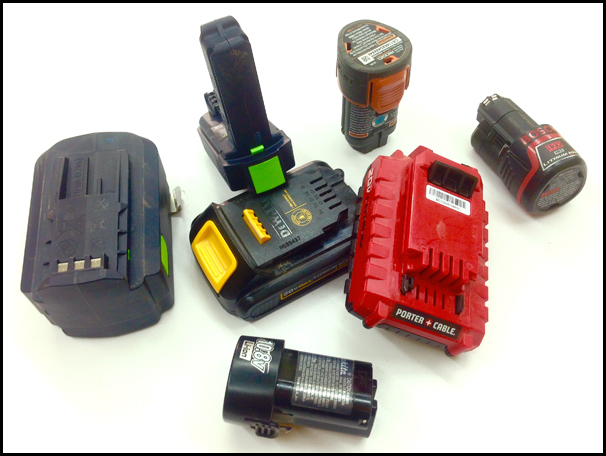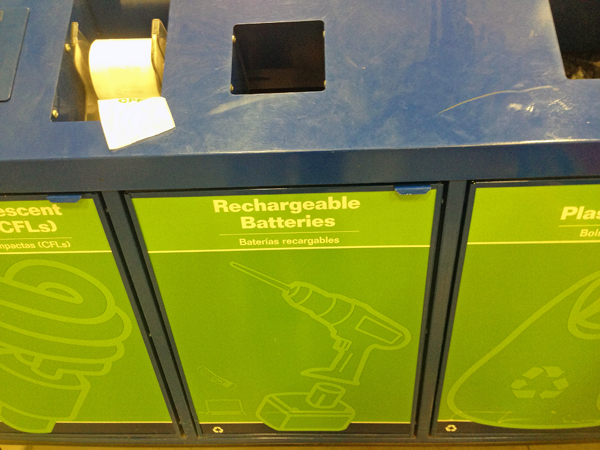
I have at least four cordless tools that use lithium-ion batteries. As you know, it has been all over the news recently about the hoverboard toys where the lithium-ion batteries have caught fire and have even caused homes to burn down with loss of life. So what are we to do with all of our cordless tools that have these same batteries in them? Should we dig a hole and bury them, or are they safe for us to keep? And if we do, how should we store them so they will not burn our houses or shops down in case they do become a fire hazard? I am pleading for you to find the answer to this hot question for me and all of your other readers. – John W. Tice
Rob Johnstone: I understand your concern, but don’t go burying your batteries just yet. The lithium-ion batteries that are in our power tools have been tested and found to be very safe. Lithium-ion refers to the chemistry used to make the batteries, but there is not only one way to formulate that chemistry or to assemble the various components in a battery to generate electricity. If our tool-based batteries were problematic, we would have heard about it long ago.
Although I don’t know much about the hoverboard batteries, I am guessing they were designed to be made cheaply and yet deliver as much power as possible. That is a tricky and apparently dangerous challenge. From time to time, other uses of lithium-ion have caused problems over the years. There were some laptop computers that sometimes caught on fire. Early cell phone batteries had that problem.
But don’t lose any sleep over your drill drivers bursting into flame … that is quite unlikely. If you want to take an extra step with safety in mind, remove all your batteries from the tools when they are not being used. And pull the batteries from the chargers when they have been recharged. But all in all, we have very safe tools in our shops.
Tim Inman: You raise two important issues here. One is waste disposal; the other is tool liability and safety. As for proper waste disposal, there isn’t much room for “homemade and handy” ideas. Waste disposal, especially hazardous waste disposal, is a very specific legal issue. In order to dispose of an item properly, you need to consult the folks at your local DNR or waste management company. If you have a professional waste hauler take away your flotsam and jetsam, they will know exactly how they will accept your material. You may have to label/wrap/package/report in a special way for them. Otherwise, be careful what you put and where you put it. Big fines can happen if you get this wrong.
As to the specific question of whether your tools will catch fire and make a big show at some unwanted time, get on the Internet and see if there is a manufacturer’s bulletin or recall relative to your specific tools (brand, model number, etc.). React accordingly. I’m with Rob. Unless there is something way out of control here, you’re probably good to go.
Chris Marshall: Good-quality cordless tools these days (and by that I mean tools from trusted name brands, intended for heavy duty use) also will come with “smart” chargers that read the battery’s diagnostics while it charges, cell by cell. The charger “knows” when to reduce the recharging process from full charge to a trickle charge. That helps prevent overcharging that can lead to trouble.
Related to Tim’s comment about what to do with your cordless tool batteries when they finally won’t take a charge any longer, here’s an easy solution: Lowe’s® offers a free recycling program for rechargeable batteries in stores. It’s a wonderful service, and I’ll bet most of us don’t have to drive too far to find a “Big Blue Box” to drop them off. Look for the battery recycling receptacle near the customer service desk.







